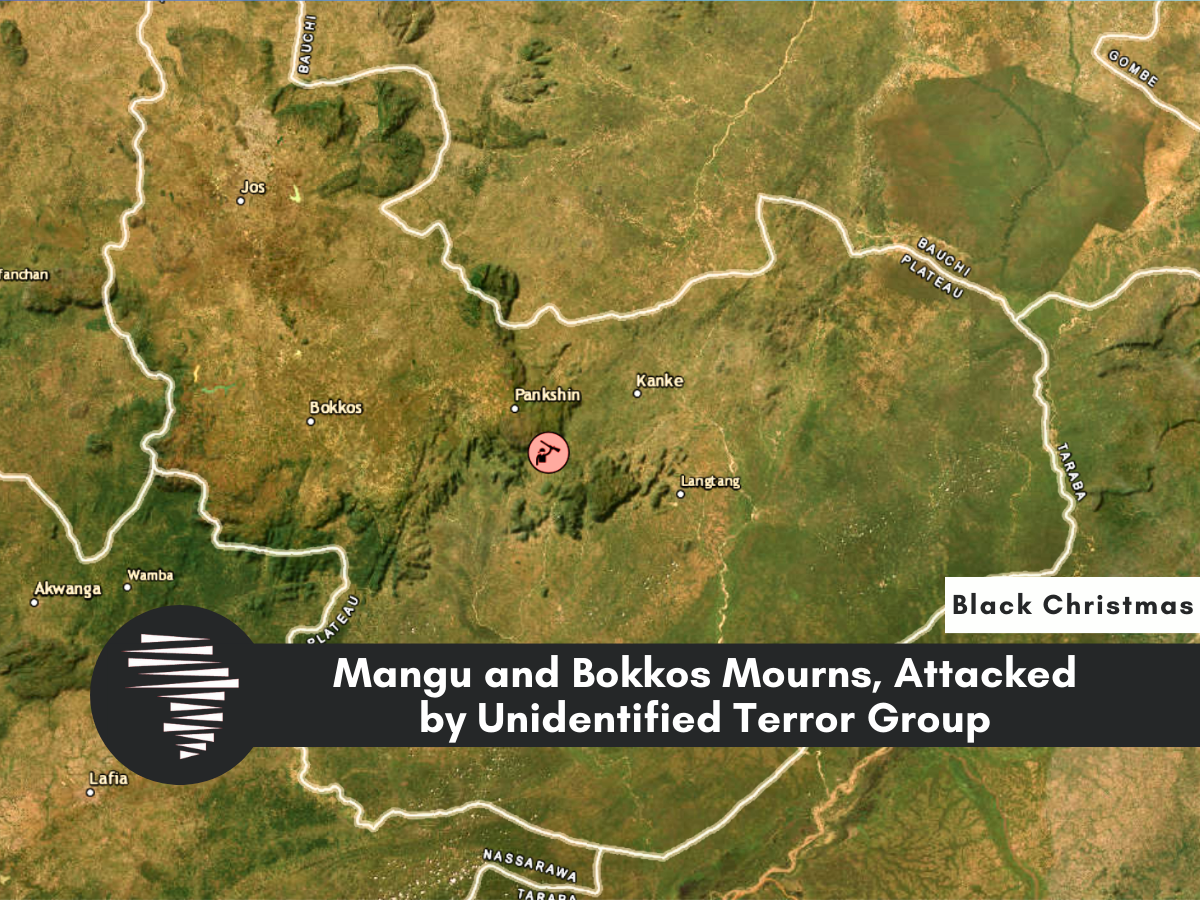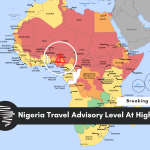
Mangu and Bokkos Mourn, Attacked by Unidentified Terror Group

On December 24th, the attack that led to the destruction of lives and properties turned a day of joy into a bloodbath in the villages of Mangu, Bokkos, and Barkin Ladi is now considered an unprovoked yet well-coordinated attack by the Plateau State Governor, Caleb Muftwang.
The attack has left a State known for ‘Peace and Tourism’ with over 100 villagers dead, many injured, and some fled for safety. The area, which is on the line separating the predominantly Christian south from the predominantly Muslim north of Nigeria, has long been plagued by conflicts based on ethnicity and religion. Who was behind the most recent attack and what set it off were not immediately apparent as the Plateau state governor urges the security agencies to investigate and find out. The deployment of security officers was aimed at averting further conflicts in the region, as petty massacres between farmers, who are predominantly Christian, and herders, who are mostly Muslim, frequently turn into heavily armed gang raids in villages.
Amnesty International criticized the government in the wake of the attacks, saying ‘the Nigerian authorities have been failing to end frequent deadly attacks on rural communities of Plateau state,’ in a post on X, formerly Twitter.
Northwest and Central Nigeria have been long terrorized by bandit militias operating from bases deep in forests and raiding villages to loot and kidnap residents for ransom.
Competition for natural resources between nomadic herders and farmers, intensified by rapid population growth and climate pressures, has also exacerbated social tensions and sparked violence.
Nonetheless, the safety and security of the State is the responsibility of the Governor, which is now being challenged by insecurities rising from terror attacks ravaging the communities of Mangu, Bokkos, and Barkin Ladi. The governor, however, condemned the recent attack, calling it “barbaric, brutal and uncalled for’ and vowed to bring the perpetrators to justice while he mourns with the State.
About The Author
Mayowa Durosinmi
author
M. Durosinmi is a West Africa Weekly investigative reporter covering Politics, Human Rights, Health, and Security in West Africa and the Sahel Region
Mayowa Durosinmi
M. Durosinmi is a West Africa Weekly investigative reporter covering Politics, Human Rights, Health, and Security in West Africa and the Sahel Region
Related Articles
Asake Sets New Billboard Afrobeats Record as Chart Presence Grows
Asake has further cemented his place as one of Afrobeats’ most dominant...
ByWest Africa WeeklyJanuary 29, 2026Nigerians Lament PayPal’s Return as Old Wounds Resurface
PayPal’s reentry into Nigeria through a partnership with local fintech company Paga...
ByWest Africa WeeklyJanuary 29, 2026Tanzania Eyes Gold Sales as Aid Declines and Infrastructure Needs Grow
Tanzania is weighing plans to sell part of its gold reserves to...
ByWest Africa WeeklyJanuary 29, 2026Mali Tightens Grip on Explosives Supply With New Majority Stake
The Malian government has taken majority ownership of a civil explosives manufacturing...
ByWest Africa WeeklyJanuary 29, 2026











